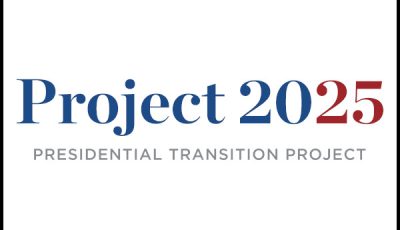Why Is Someone Always Out to Destroy the Porn Industry? A Conclusion
 Back in February, I undertook a series exploring why there’s always someone out to get the porn industry. Over the past three months, I’ve written eight of the most prominent anti-porn crusaders of the past six and a half decades, from Charles Keating, who Nixon appointed to the President’s Commission on Obscenity and Pornography in 1969, all the way up to Laila Mickelwaite, whose recent agitation against Pornhub has resulted to an ongoing sea change in how banks and credit cards deal with the adult entertainment industry online.
Back in February, I undertook a series exploring why there’s always someone out to get the porn industry. Over the past three months, I’ve written eight of the most prominent anti-porn crusaders of the past six and a half decades, from Charles Keating, who Nixon appointed to the President’s Commission on Obscenity and Pornography in 1969, all the way up to Laila Mickelwaite, whose recent agitation against Pornhub has resulted to an ongoing sea change in how banks and credit cards deal with the adult entertainment industry online.
All along, I’ve been looking for why they do what they do. What ties these anti-smut campaigners together. Some commonality in their characters, their tactics, their ideologies. Instead I found a relatively mixed bag of individuals who fell into several camps.
First, there are the true believers who, for whatever reason, honestly think that fighting pornography is the right thing to do. Whether their belief is the product of sound reasoning, religious conditioning, or something else entirely, I find it impossible to argue that these folks are pitting themselves against porn purely for their own self-interest. Especially Andrea Dworkin, a radical feminist who wrote that pornography is “a celebration of rape and injury to women.” And even Judith Reisman, whose work was laughed out of academic circles but whose belief that porn was hurting people remained steadfast throughout her life. (She passed away on April 9, several weeks after my article was published.) I can’t find any evidence that, however hyperbolic they may have been, either one of them was insincere.
Likewise, I believe that anti-porn activists Shelley Lubben and Laila Mickelwaite fall into the “true believers” camp. Both seem to operate from a deeply held belief that their work is important, and likely a mission from God—though Mickelwaite is less open about her religious affiliation than Lubben ever was. However, in both Lubben and Mickelwaite I sense a large measure of cynicism.
Lubben, having been a sex worker herself, may have honestly believed that porn actors needed her help—but she also saw an opportunity to help herself to the media spotlight and non-profit fund-raising. Likewise, Mickelwaite may truly believe that she’s helping victims of sex trafficking and exploitation in her push to “hold Pornhub accountable,” but given her anti-sex-work and far-right Christian background, it’s likely she saw Pornhub’s transgressions as a shortcut to hamstringing the entire modern porn industry. And the fact that there is profit aplenty in the anti-porn non-profit community doesn’t hurt Mickelwaite’s bottom line, at all.
For the above reason, I believe Mickelwaite and Lubben fall partially into the “non-profit royalty” category of anti-porn crusaders. They’re joined there by Patrick A. Trueman, president of the National Center on Sexual Exploitation and the fearmonger behind the “porn as a public health crisis” craze sweeping conservative lawmakers nationwide. This group is rounded out by Michael Weinstein, president of the largest AIDS healthcare non-profit in the world, and whose efforts to force condoms onto porn actors’ bodies for well over a decade seem to have been largely motivated by his organization’s desire to sell condoms. For them, doing good in the world seems like a heartfelt goal—but it’s not the only goal. Using porn as a convenient way to solidify their standing in their field of activism seems to be just as important.
And then there are the true opportunists—folks who seem less interested in porn’s menace to the population than in the fame and power that targeting smut can bring them. The two people who made porn nothing more than a stepping stone for their careers in finance and politics, respectively, are Charles Keating and Edwin Meese.
Keating rose to prominence as a “concerned citizen” who crusaded against pornography in Cincinnati, Ohio, and was launched to prominence when he became Richard Nixon’s vociferous anti-porn bulldog in the late sixties—from whence he proceeded to rise through the ranks of national financial institutions, defrauding consumers along the way and eventually having a large hand in the savings and loan crisis of the 1980s.
Edwin Meese was tasked by President Reagan with leading the Attorney General’s Commission Pornography—and proceeded to stock the commission with right-wing zealots so he could deliver Reagan the anti-porn conclusion he demanded. Meese never seemed to have anything against porn, but he was willing to throw the industry under the bus in a 1,500-page report that flouted science, which bears his name in the popular consciousness, and which continues to influence policy and thinking about porn to this day.
So, does anything really tie all these crusaders together? Surprisingly—given that one of them seemed to care less about porn than about pleasing his boss, and that another was more interested in making pornographers suffer when he didn’t get his way about condoms—it’s not that they all hate porn. And—given that at least two of them seemed to honestly believe that they were doing the right thing by agitating against dirty media—I can’t say they’re all opportunists, either.
But there is one thing that I can speculate on, which may indeed unite the entire group: the desire for power.
“Power” can look very different for different people—particularly in the cases of Shelley Lubben, who died in relative obscurity in 2015, versus Edwin Meese, who was awarded the Presidential Medal of Freedom in 2019. But power seems to be a common motivator amongst these individuals, whether it’s over their narrative (like Dworkin, Reisman, and Lubben), over their careers (like Trueman and Mickelwaite), or over the people who work in the porn industry itself (like Keating, and Meese). All these people saw in the adult entertainment industry an opportunity to pull themselves upward, and if that meant stepping on the people whose industry they were injuring, so be it.
The reality that these folks seem to have grasped is that adult entertainment in America has never had a lot of capital to work with. Nor does it have support from influential individuals, organizations, or the general public. Even distribution giants like MindGeek, whose pockets are deeper than your average porn company’s, stand on tenuous foundations in our sex-negative culture. Thus, it’s relatively easy to make a reputation, a career, or a credible case for one’s own questionable moral crusade, by making porn one’s foil.
Whether it’s in the name of Christian morality, public health, fighting exploitation, or nearly any other societal ill, porn is an easy scapegoat. And every single one of these anti-porn crusaders used, or is currently using, that very simple fact to great effect in their own grabs for power.













